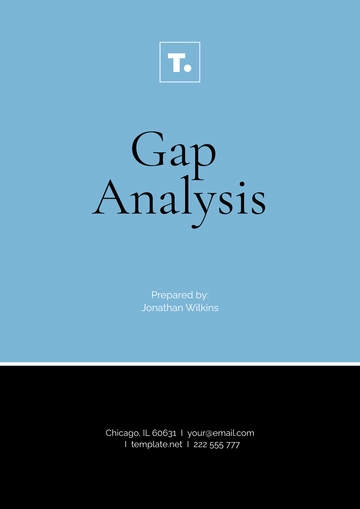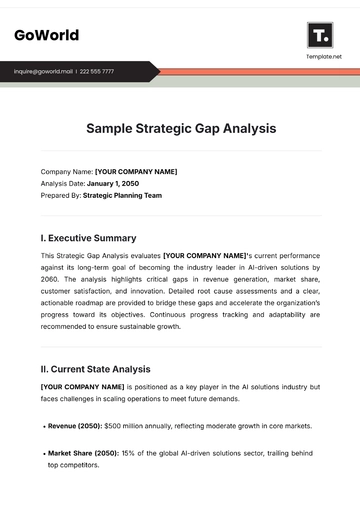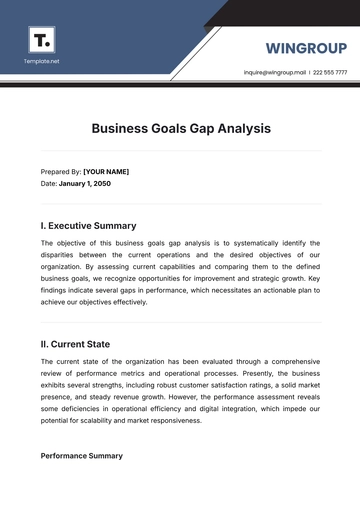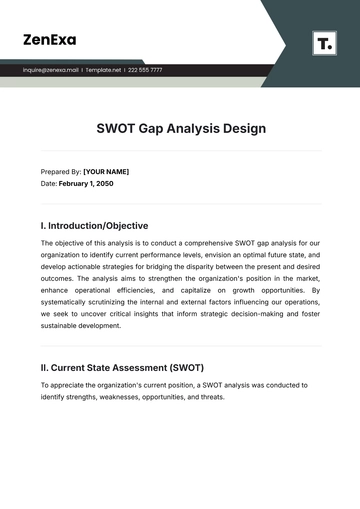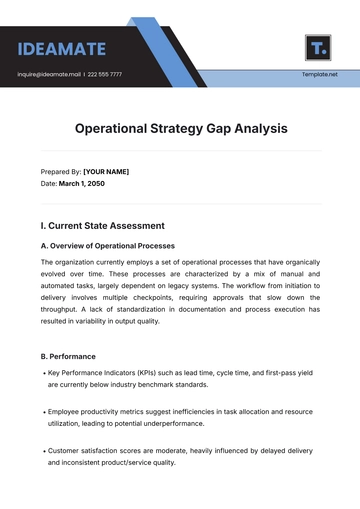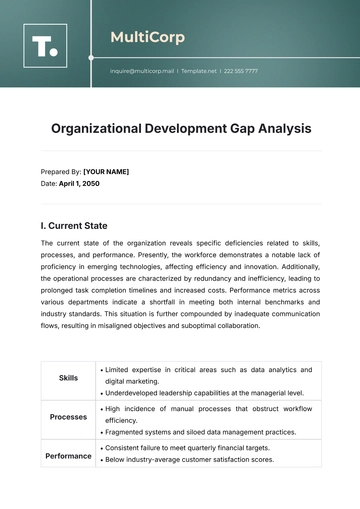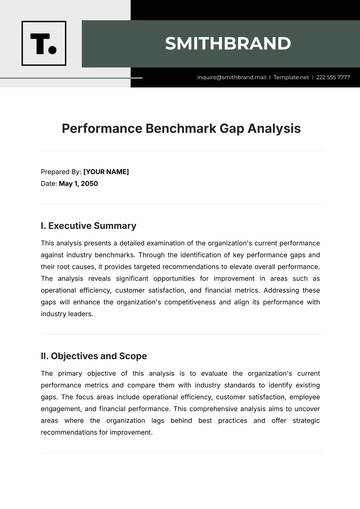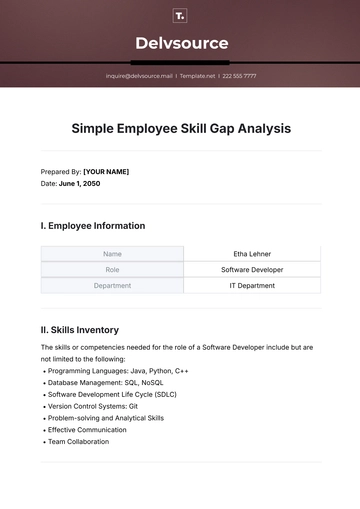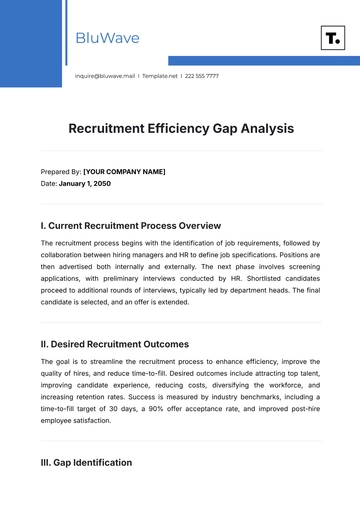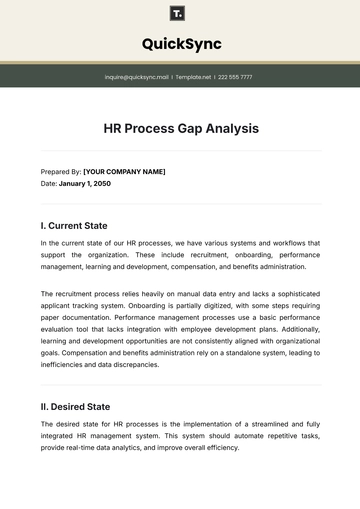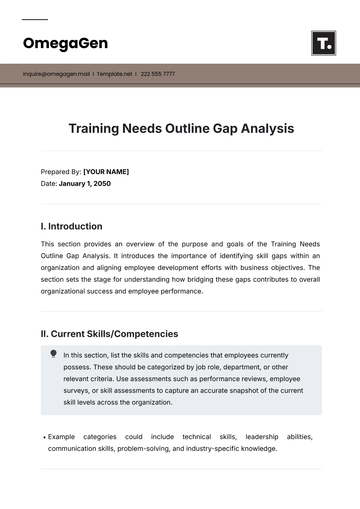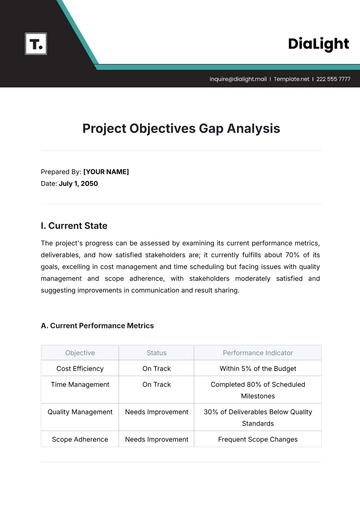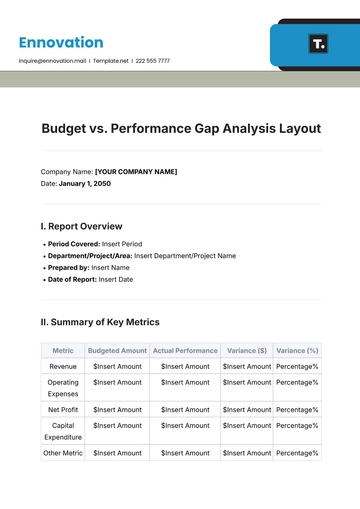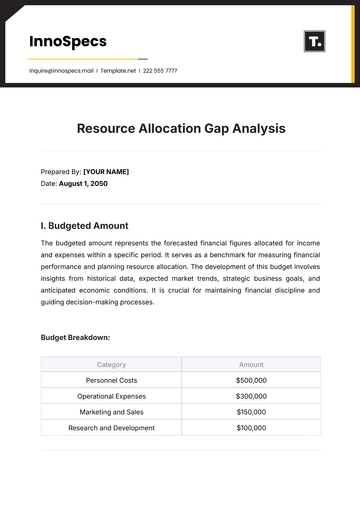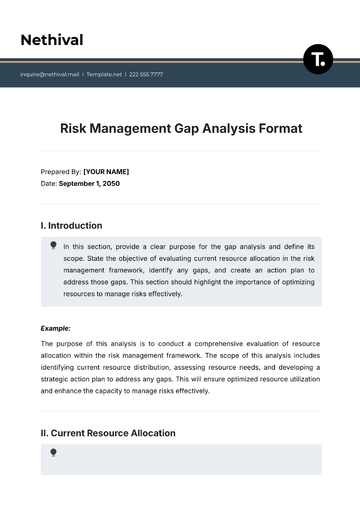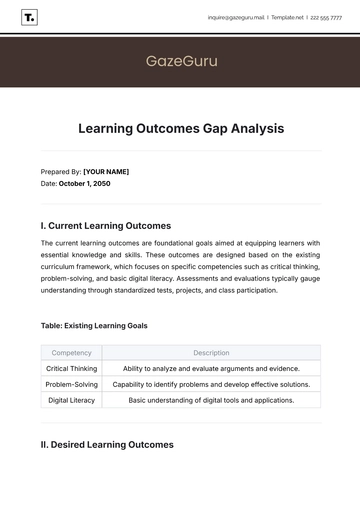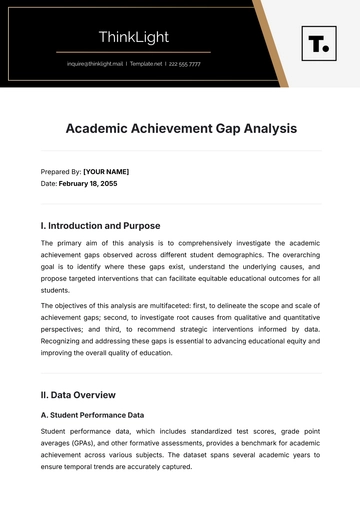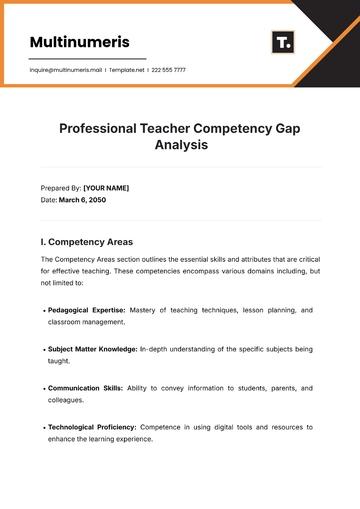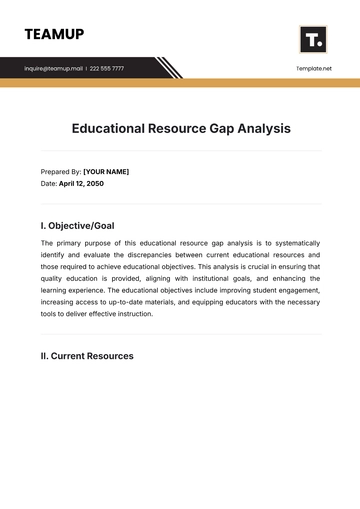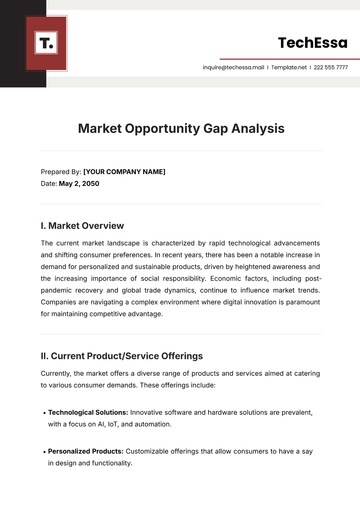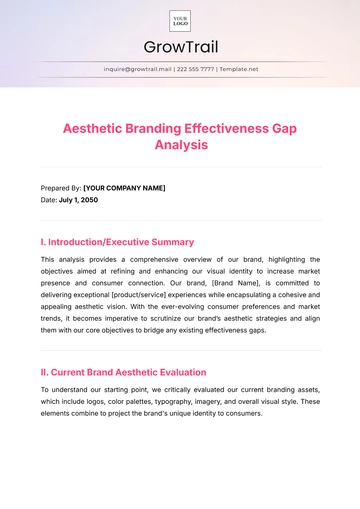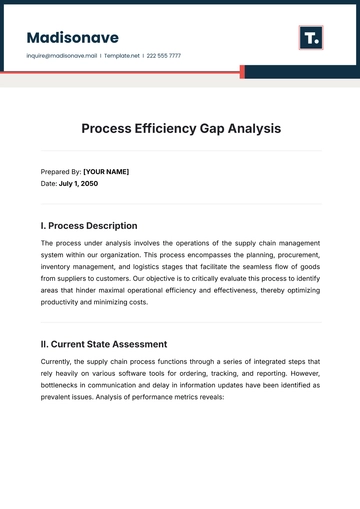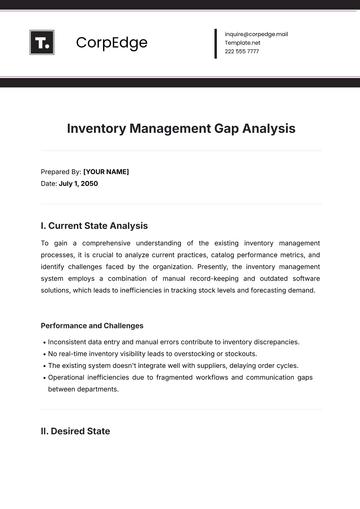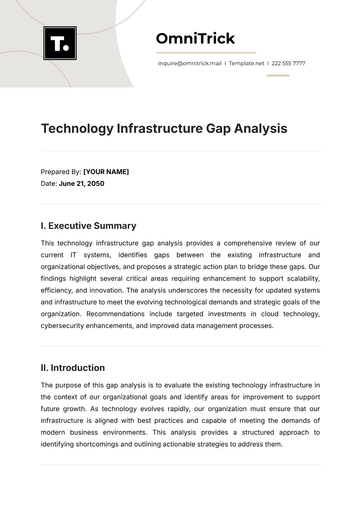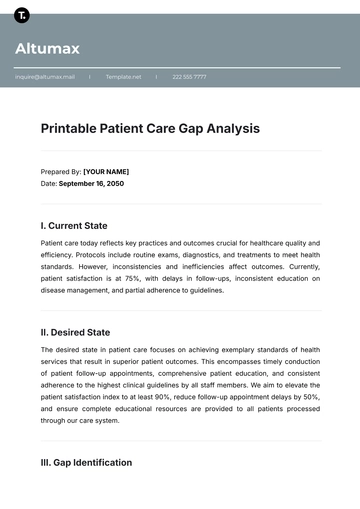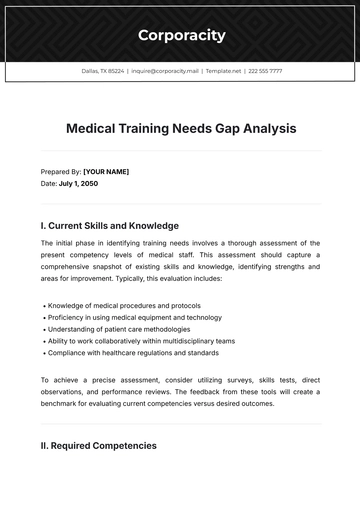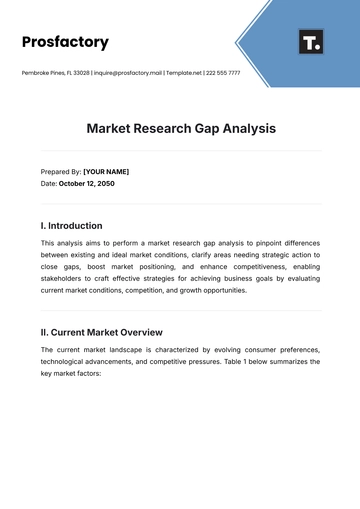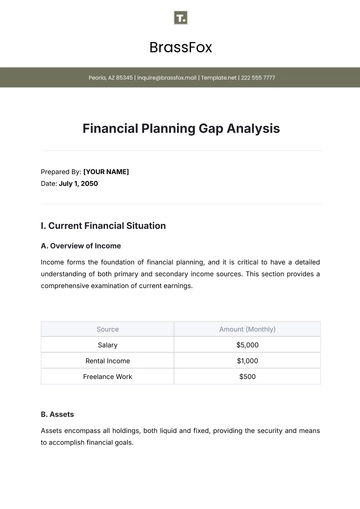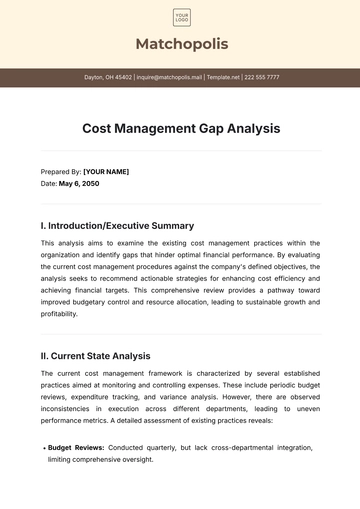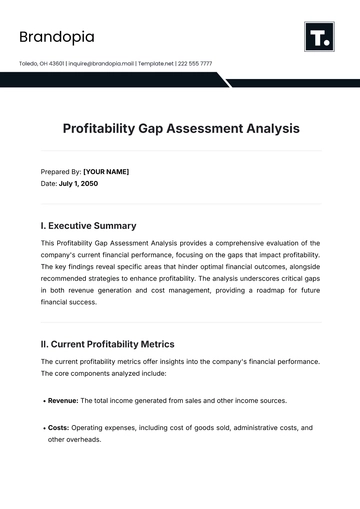Free Professional Teacher Competency Gap Analysis
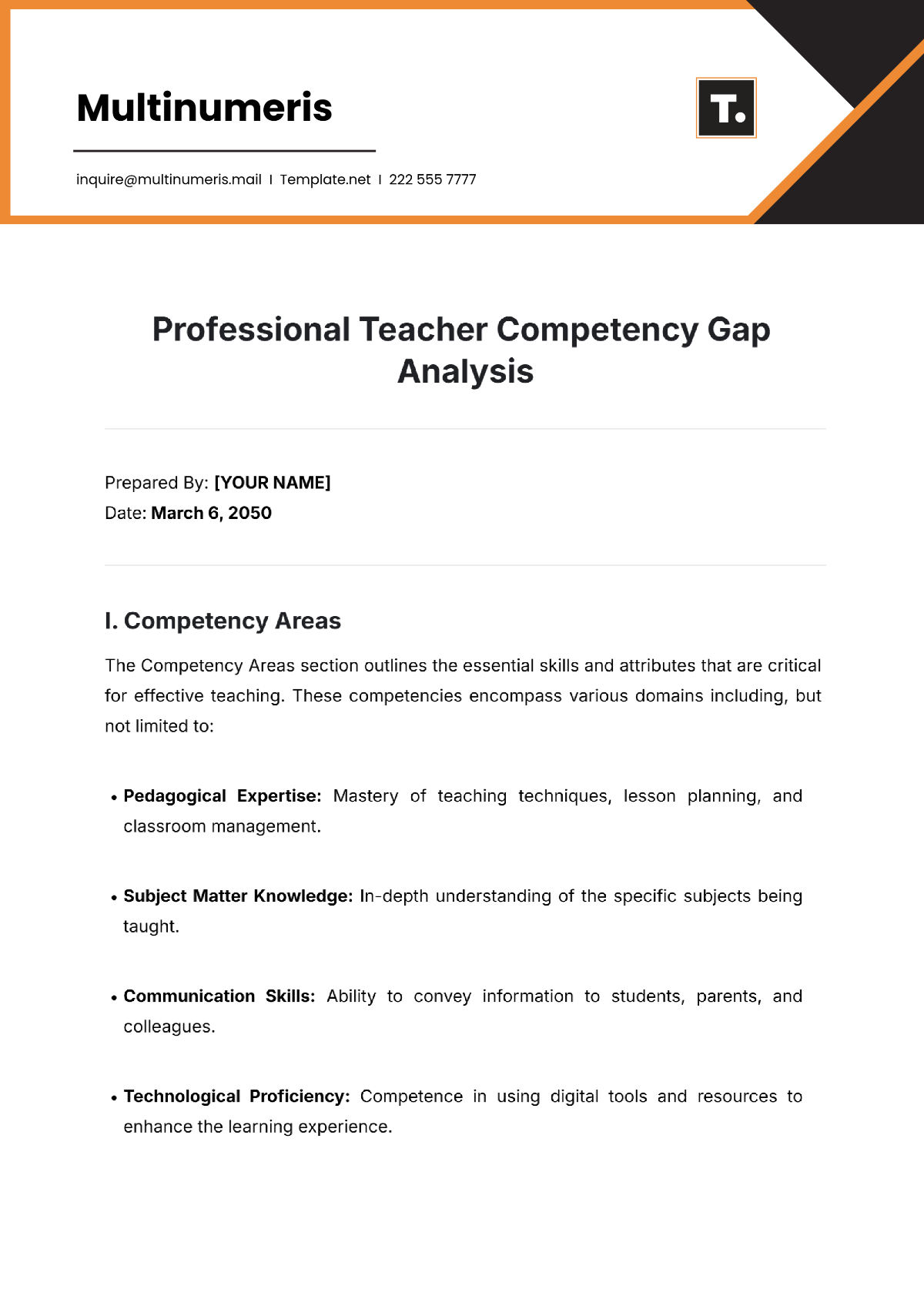
Prepared By: [YOUR NAME]
Date: March 6, 2050
I. Competency Areas
The Competency Areas section outlines the essential skills and attributes that are critical for effective teaching. These competencies encompass various domains including, but not limited to:
Pedagogical Expertise: Mastery of teaching techniques, lesson planning, and classroom management.
Subject Matter Knowledge: In-depth understanding of the specific subjects being taught.
Communication Skills: Ability to convey information to students, parents, and colleagues.
Technological Proficiency: Competence in using digital tools and resources to enhance the learning experience.
Assessment and Evaluation: Skills in designing and implementing effective assessment strategies.
Student Engagement: Ability to foster a motivating and inclusive classroom environment.
II. Current Competency Level
The Current Competency Level section provides an assessment of where the teacher stands in relation to the identified competencies. This evaluation is based on classroom observations, feedback from peers and administrators, and self-assessment tools.
Competency Area | Current Level (1-5) |
|---|---|
Pedagogical Expertise | 3 |
Subject Matter Knowledge | 4 |
Communication Skills | 4 |
Technological Proficiency | 2 |
Assessment and Evaluation | 3 |
Student Engagement | 3 |
III. Desired Competency Level
The Desired Competency Level section defines the optimal proficiency level that teachers should achieve. This target is essential to meet educational standards and to ensure effective teaching that enhances student learning outcomes.
Competency Area | Desired Level (1-5) |
|---|---|
Pedagogical Expertise | 5 |
Subject Matter Knowledge | 5 |
Communication Skills | 5 |
Technological Proficiency | 4 |
Assessment and Evaluation | 4 |
Student Engagement | 5 |
IV. Gap Analysis
The Gap Analysis identifies the disparity between the current and desired competency levels. By pinpointing these gaps, educators can focus on areas that require improvement to elevate their teaching efficacy.
Competency Area | Gap |
|---|---|
Pedagogical Expertise | 2 |
Subject Matter Knowledge | 1 |
Communication Skills | 1 |
Technological Proficiency | 2 |
Assessment and Evaluation | 1 |
Student Engagement | 2 |
V. Action Plan
The Action Plan outlines strategic steps and recommendations designed to bridge the competency gaps identified in this analysis. This plan serves as a roadmap for professional growth and development.
Pedagogical Expertise: Attend workshops on advanced teaching strategies and participate in peer observation sessions.
Subject Matter Knowledge: Enroll in subject-specific courses and join professional associations to stay updated with the latest developments.
Communication Skills: Engage in communication skills training and practice through role-playing exercises and peer feedback.
Technological Proficiency: Pursue certification courses in educational technology and integrate new tools into classroom activities.
Assessment and Evaluation: Collaborate with colleagues to design innovative assessment tools and attend relevant seminars.
Student Engagement: Implement cooperative learning techniques and incorporate student feedback into lesson planning.
VI. Timeline
The Timeline provides a structured schedule for completing the improvement plan, allowing for efficient tracking of progress.
Objective | Timeframe |
|---|---|
Pedagogical Expertise Development | 6 Months |
Subject Matter Knowledge Enhancement | 4 Months |
Improving Communication Skills | 3 Months |
Technological Competency Upgrade | 5 Months |
Assessment Strategy Improvement | 6 Months |
Boosting Student Engagement | 6 Months |
VII. Resources
The Resources section lists the tools, training, and support mechanisms necessary to facilitate the continuous improvement of the teacher’s competencies.
Online Learning Platforms: Access to Coursera, EdX, and other platforms for coursework and webinars.
Professional Development Workshops: Participation in educational workshops and in-service training sessions.
Mentorship Programs: Involvement in mentoring relationships with experienced educators for guidance and support.
Educational Technology Tools: Utilization of software like Google Classroom, Kahoot!, and other digital resources for teaching.
Library and Learning Resources: Use of school and community library facilities for research and self-study.
- 100% Customizable, free editor
- Access 1 Million+ Templates, photo’s & graphics
- Download or share as a template
- Click and replace photos, graphics, text, backgrounds
- Resize, crop, AI write & more
- Access advanced editor
Support professional growth with the Professional Teacher Competency Gap Analysis Template from Template.net. This editable and customizable template is designed to assess gaps in teaching skills and competencies. Adapt the content seamlessly using our AI Editor Tool to create actionable development plans. Enhance educator performance and improve classroom outcomes with this essential resource.
